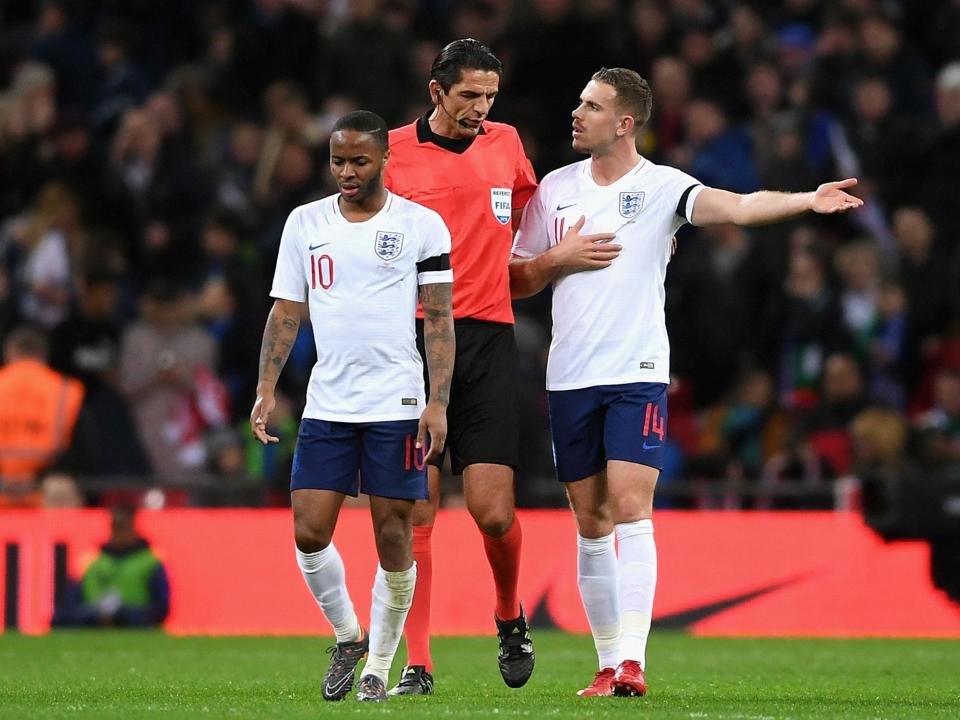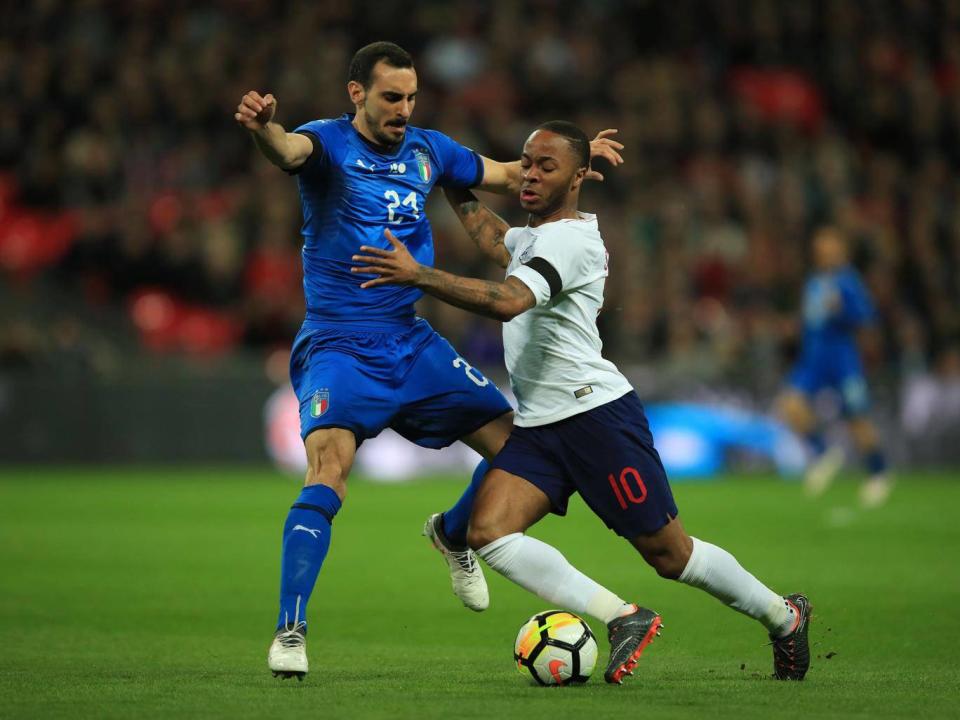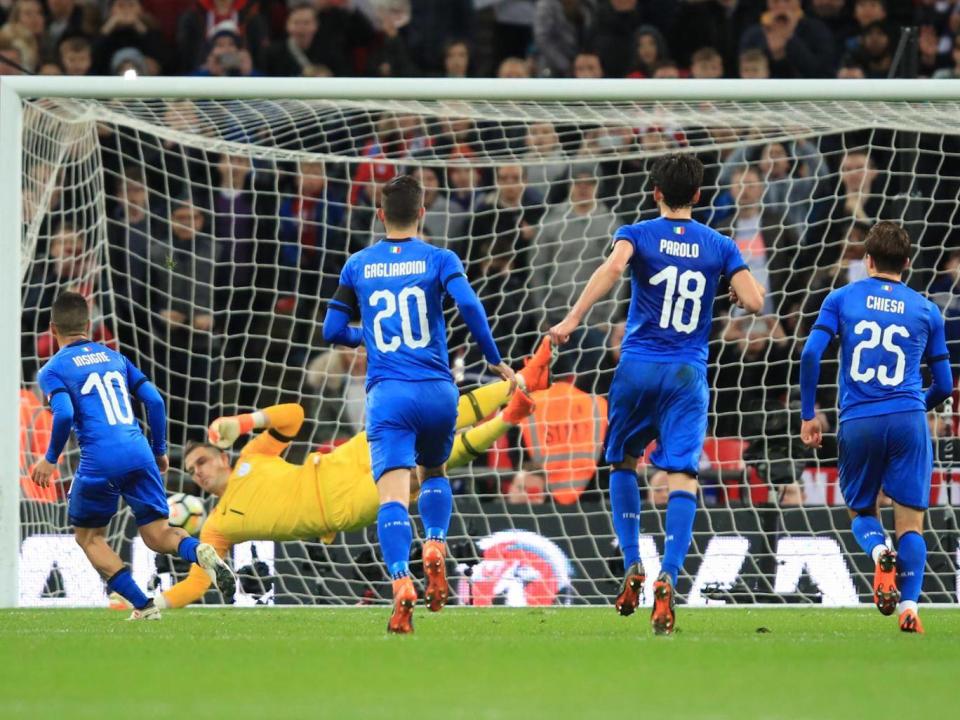Lessons to learn as England's Italian job comes undone by VAR penalty decision in World Cup warm-up

A painful sting in the tail here for England, and one from which lessons will need to be learned. Italy earned their draw at Wembley – Lorenzo Insigne’s controversial penalty three minutes from time saw to that – and on the balance of chances they may even have deserved it. But Gareth Southgate’s team will reflect on a game in which their best intentions and long periods of promise ultimately gave way to a familiar and clumsy fragility.
There will be a sense of injustice over that late penalty, awarded after recourse to the Video Assistant Referee after a foul on Federico Chiesa, but in truth it was only the last in a series of lapses by England over the course of the evening. Charitably, you could put them down to a young side learning a precise system with little practice time. Equally, we are within our rights to wonder how a side this brittle in a moderately-paced friendly will cope with the searing cauldron of a World Cup.
What we learned, if we didn’t know it already, was that if problems are going to arise for this appealing but flawed England side, they will probably arise at the back, where they still look too vulnerable to a single innocuous error. John Stones had a poor game on the ball. Kyle Walker still looks a loose fit for his new centre-back role, and was a curious man-of-the-match choice. And despite a largely secure display, it was debutant James Tarkowski whose late foul, stepping on Chiesa’s foot, allowed Italy their equaliser.

And yet for all England’s disappointment, the positives still just about outweighed the negatives. If the Holland game was about finding their feet, this was where England showed their teeth. The tackles flew in with gusto and malice. A surly Alex Oxlade-Chamberlain earned a yellow card for kicking the ball away. Insigne’s penalty was delayed by a mild scuffle between the two sides. It wasn’t always pretty, and it wasn’t always wise. But in a weird way, it was refreshing to see an England side who cared this much.
Further up the pitch, meanwhile, the picture is becoming a little clearer. Raheem Sterling, on current form, must start. Jesse Lingard, on current form, must play. Either would have been a far more appropriate man-of-the-match, with Sterling in particular running rings around a flat-footed Italy for much of the game. Jamie Vardy’s well-taken goal might have given Harry Kane pause for thought. It was a good night, too, for Jordan Pickford, whose main rival for the No1 jersey Jack Butland had a mixed audition, giving the ball away on two or three occasions.
And the other way of looking at this game was that if Italy had taken some of their early chances, it might have been an entirely different story. Ciro Immobile squandered three good ones in the first 16 minutes, the first when he beat the offside trap and fatally paused for thought, the second when Stones messed up badly and then recovered well, the third a free header from six yards that he somehow steered over the bar.

It was a languorous start by England all told: no energy to the press, the slack intensity of a Soccer Aid game. You half-expected to see Robbie Williams and Jonathan Wilkes warming up on the sidelines. But then, suddenly, like a pencil drawing, something legible began to emerge from the random lines and inchoate squiggles. Once, twice, Sterling played the ball through to Vardy after a quick break.
Then, just before the half-hour, Lingard won the ball in midfield and slipped it to Sterling, who was cynically brought down by Marco Parolo not once but twice. Somehow, he got back to his feet, Lingard took the free-kick quickly and Vardy smashed the ball high into the net while the Italians were still regrouping. It was deliciously opportunistic, an indication of how England’s speed, not just of stride but of thought, was beginning to give them the edge.

Perhaps it was coincidence, but the withdrawal of Lingard on the hour seemed to sap England of some of their cutting edge. Lewis Cook replaced him, coming on for his England debut, but England rarely looked the same creative force in the final third of the game that they had in the middle third, and even before the Italy goal Insigne might have equalised after a well-judged run and a volley from a tight angle.
But with three minutes to go, England finally loosened their grip. Chiesa was sandwiched by Tarkowski and Ashley Young as he burst into the left channel; Tarkowski stepped on his boot, and after another short period of dead-air VAR nonsense, referee Deniz Aytekin of Germany pointed to the spot. Insigne made no mistake, and England were taught a severe lesson. They only have another 180 minutes of game time in which to learn it.

